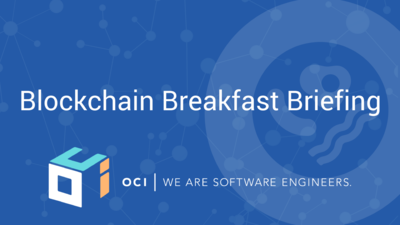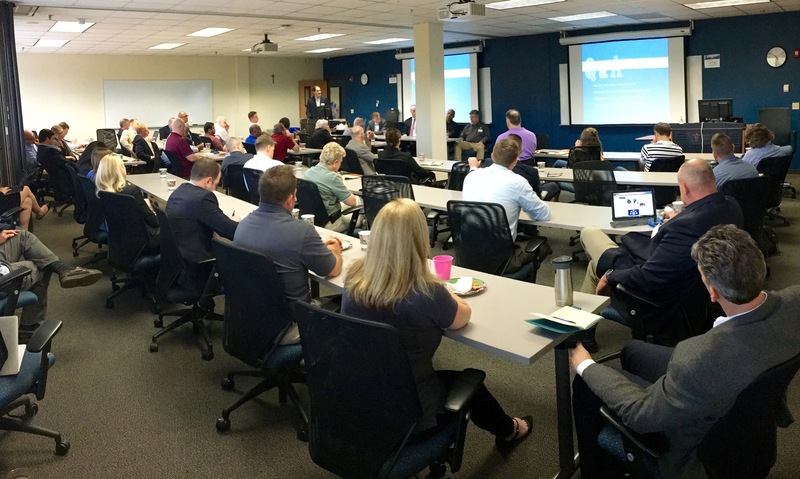
Our Blockchain Breakfast Briefing featured the following panelists, discussing the potential benefits and challenges of blockchain technologies, how blockchain is poised to affect industry, and what steps we should take to prepare.
-
Phil Mesnier, OCI Blockchain Practice Lead
-
Farron Blanc, VP Innovation Studio Lead at RGAx
-
Dan Peters, Partner at Herzog Crebs
-
Chris King, Partner at MDD Forensic Accountants

Our panelists presented unique viewpoints, outlining the benefits and challenges of blockchain advancements and how blockchain will affect their specific industries. Although each industry may encounter unique situations, many of the benefits and challenges presented were common across the board.
BENEFITS
-
Blockchain offers increased transparency and objectivity, which enables more secure systems.
One of the main pulls for blockchain implementation is the level of security it will provide with each transaction. This is due to the transparent and objective manner in which transactions must be approved by all members of the chain. Hacking of systems will become more difficult, leading to greater security.
-
Fewer tasks free up resources for more strategic initiatives.
Focus business resources on value-adding activities by eliminating manual, time-consuming administrative tasks.
-
Implementing blockchain technologies will save time, which in turn, will cut costs.
The bottom line is blockchain technologies will save organizations time and money. Records will be clear and immutable, allowing for concise communication among internal departments, as well as with outside companies and organizations. Blockchain will enable business opportunities, and those who stay ahead of the curve will reap the reward.
CHALLENGES
-
There is some uncertainty around the blockchain concept and accompanying technologies.
While many experts hold confident hypotheses regarding blockchain technology and its future, speculation remains about the depth of impact. We still have questions about how blockchain technologies will affect business processes, whether or not the technologies are ready to support such a magnificent shift, and whether our society is ready.
-
Shifts as disruptive as blockchain take time to implement and are confronted with resistance.
Inevitably, those whose jobs are affected (through automation), will resist blockchain’s adoption.
-
Regulation will slow progress.
Like any new concept, emerging blockchain ideas and technologies will face tough regulatory standards. Although certain regulations will guide users to adopt and apply blockchain technologies appropriately (such as keeping black markets at bay), government regulation may slow innovation.
Although blockchain is still in early-adopter phase, our panelists agree on one thing – whether you’re playing offense or defense, when it comes to blockchain, you definitely need to be playing.

Big thanks to SLU Workforce Development Center for hosting, and to our panelists and attendees for participating in this dynamic session!
For additional information or a copy of the slide deck presented at the event, please contact info@objectcomputing.com.
You Might Enjoy: March 2017 SETT Article: Graphene – An Open Source Blockchain
